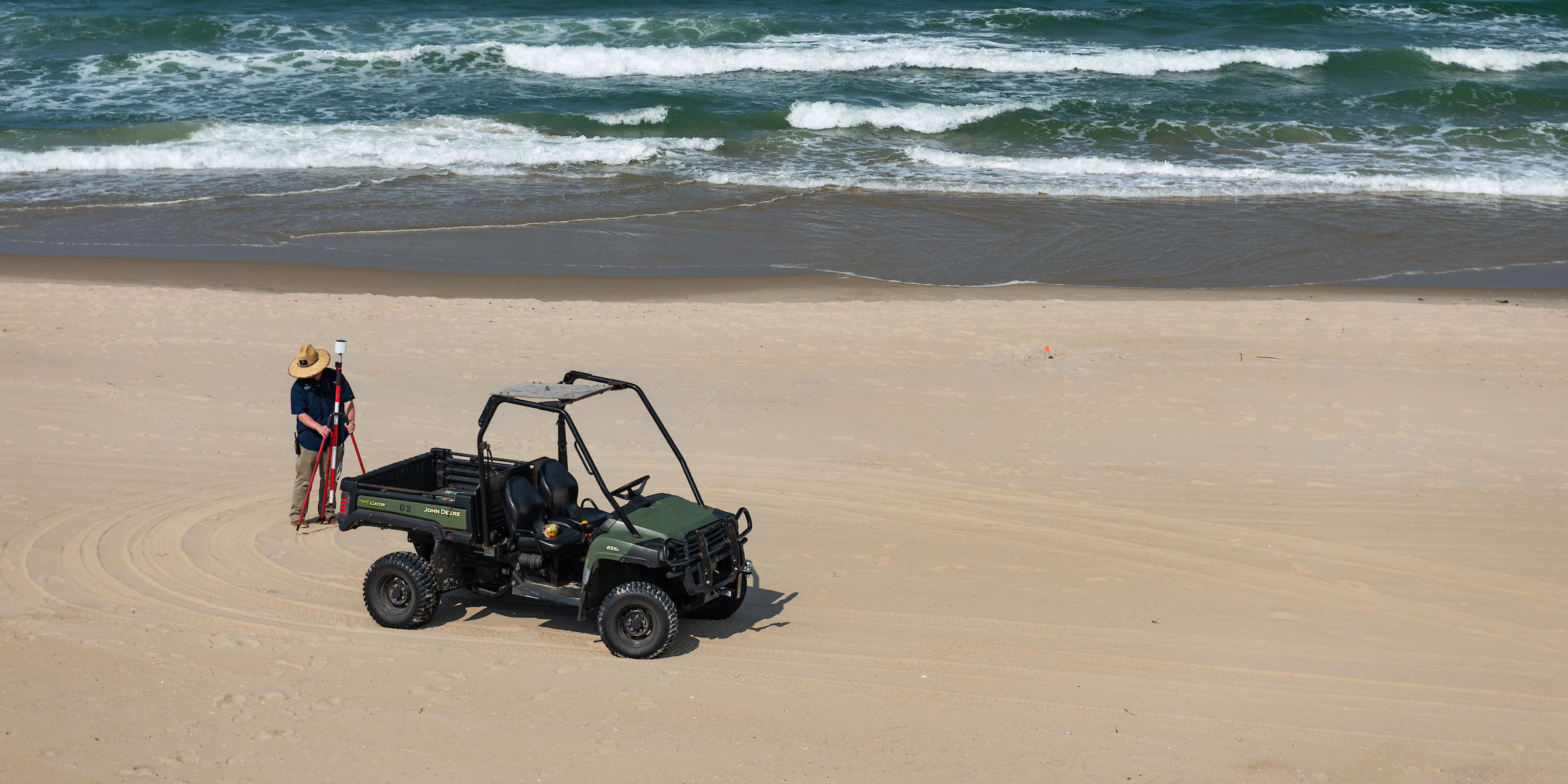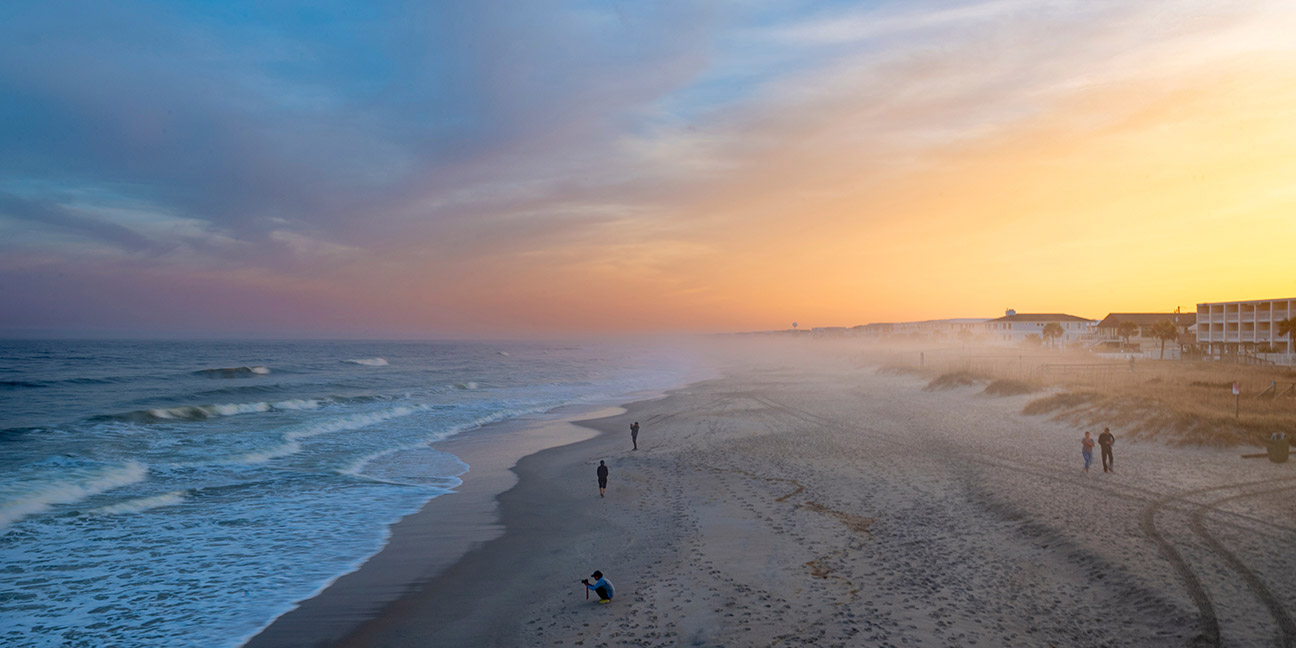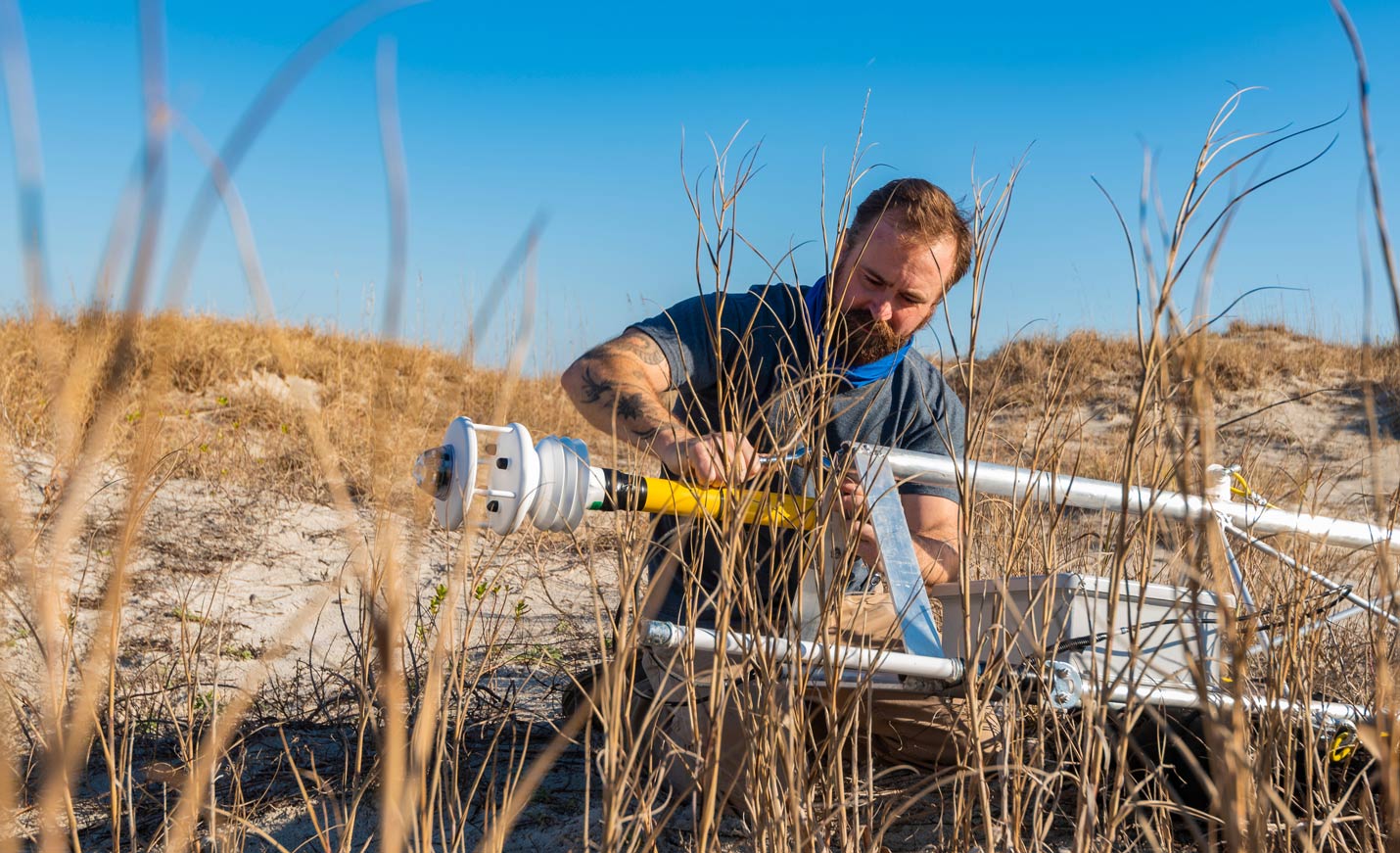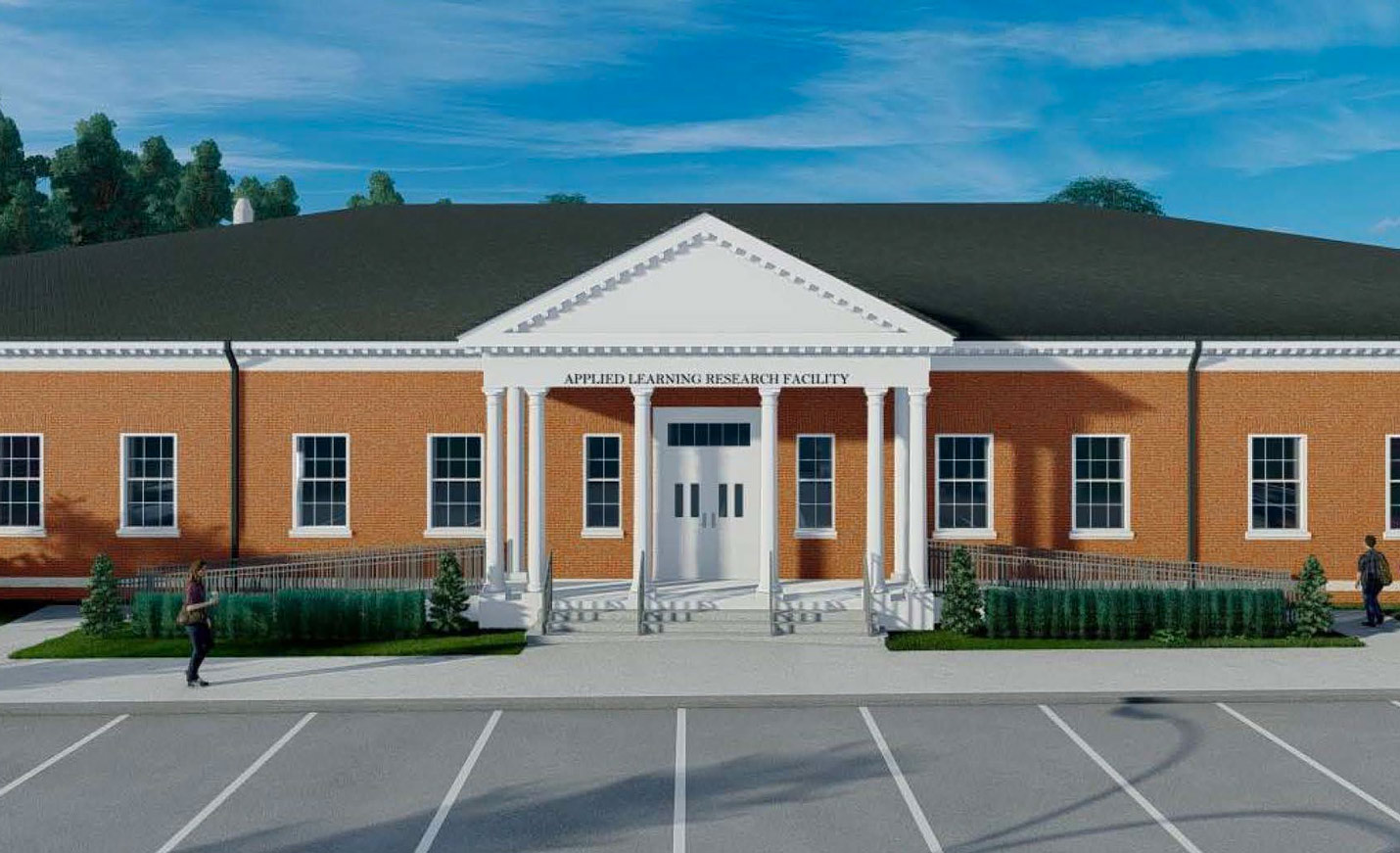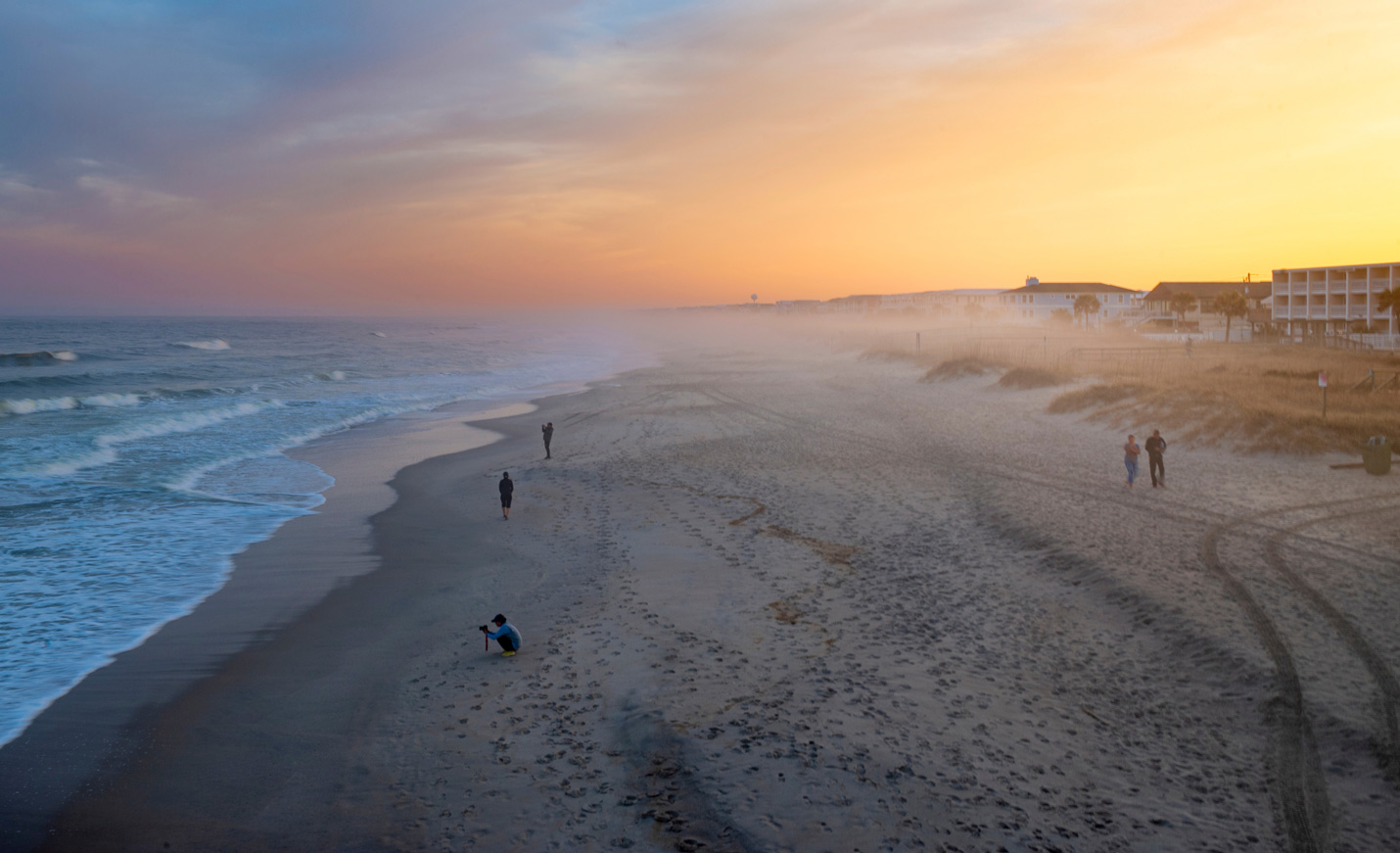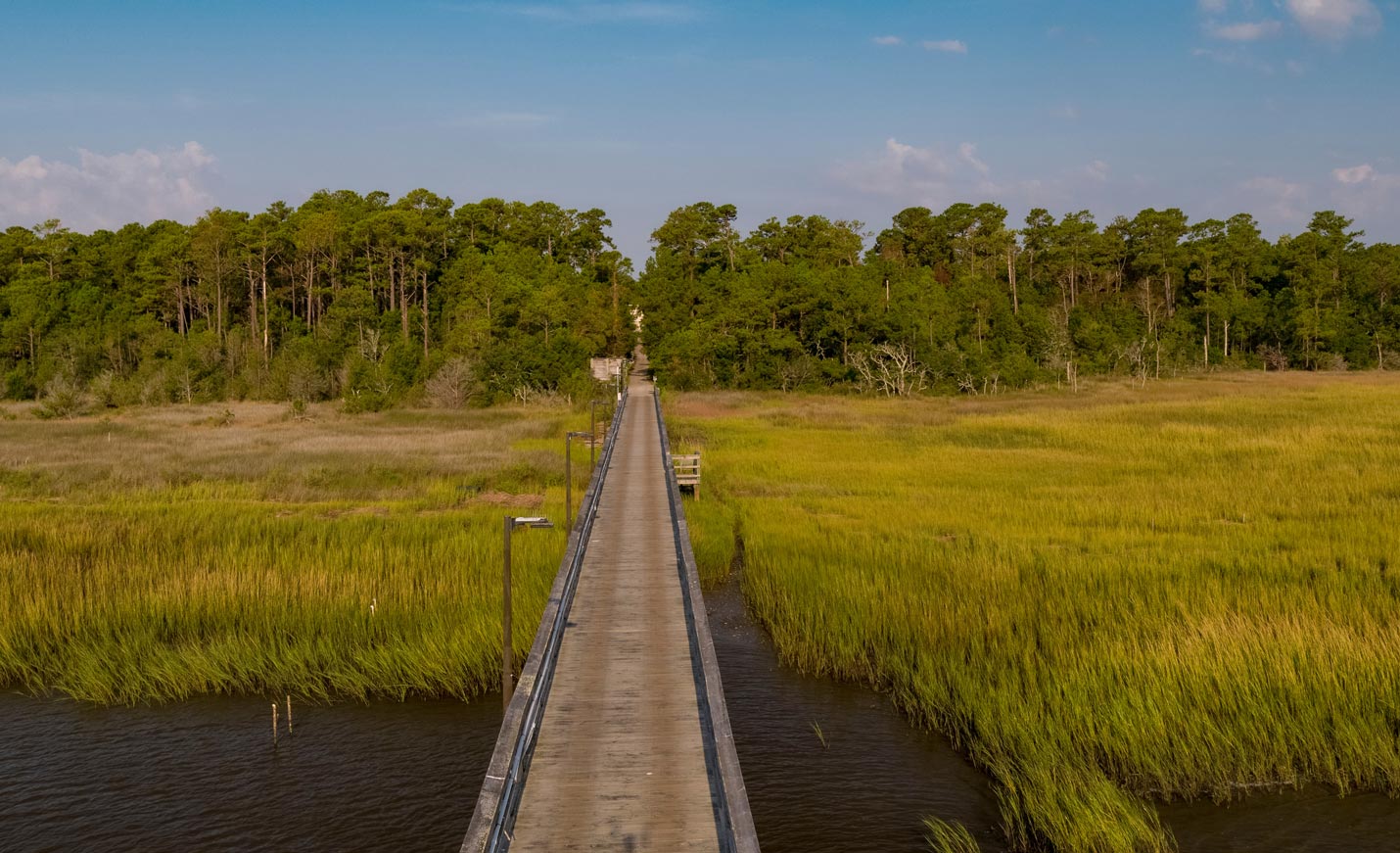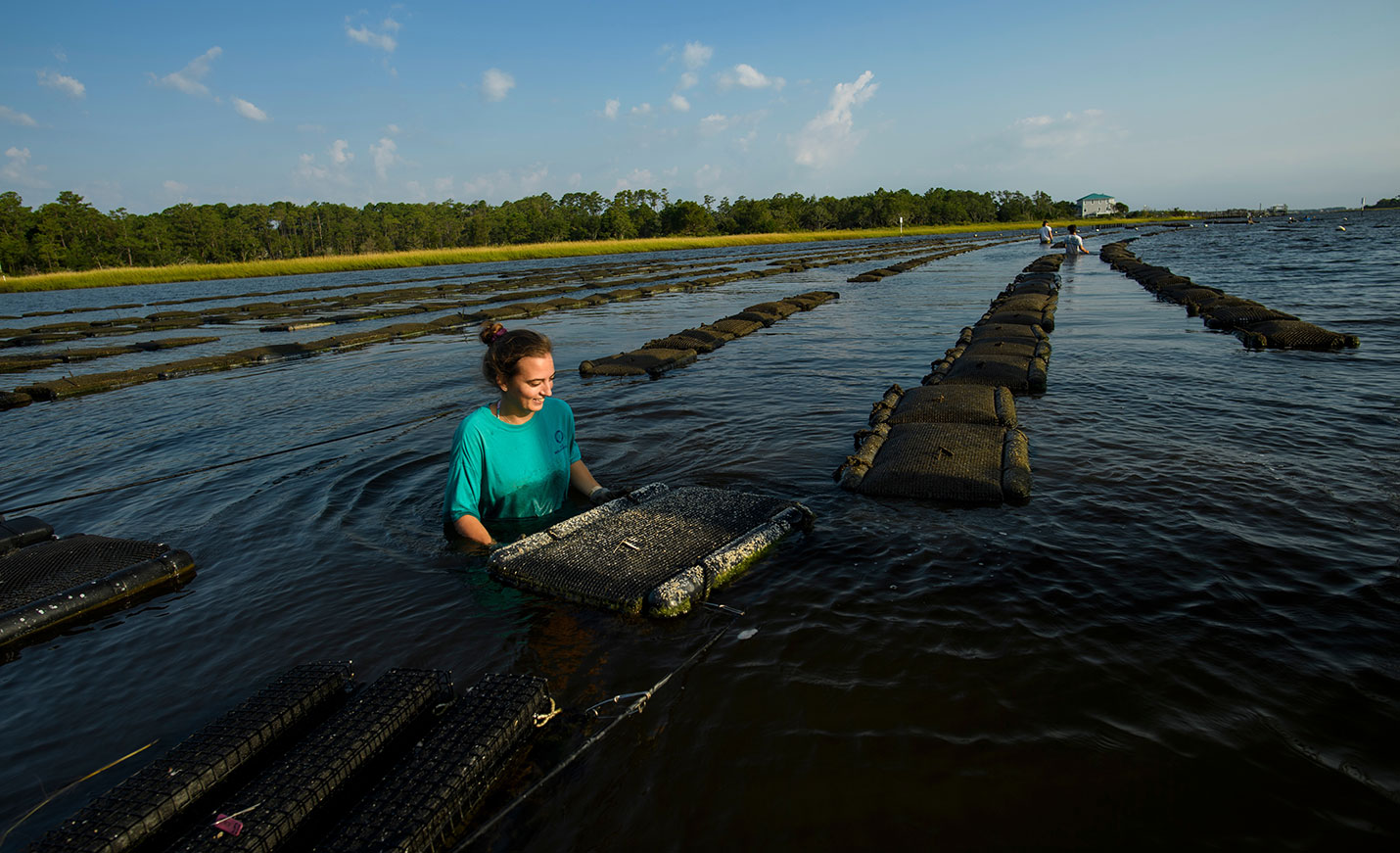Coastal communities face a wide range of challenges associated with rising seas, hurricanes, long-term shoreline change, human and ecosystem health, and increasing development. An innovative and trained coastal workforce is needed to help communities, and the nation, address these challenges.
Our graduates have been hired by state and federal agencies including the North Carolina Department of Transportation and U.S. Army Corps of Engineers and by a wide range of private surveying and design firms throughout the southeast region. In addition, some graduates have moved on to pursue graduate degrees at premier universities both domestically and abroad. The B.S. Coastal Engineering degree combines a breadth of experience that opens up a wide range of employment opportunities.
Take advantage of UNCW’s location and expertise
The program, within the Department of Physics and Physical Oceanography, leverages the university's expansive expertise in earth and ocean sciences, physical oceanography, and environmental science, as well as the regional and geographic distinctiveness of coastal North Carolina. It focuses on foundational courses in math and physics, and specialized coursework in coastal engineering and marine science.
As a coastal engineering student, you will address issues affecting coastal communities through the application of:
- Geological and physical oceanography
- Coastal management curriculum
- Applied physics
- Civil and ocean engineering fundamentals
Work with internationally respected faculty
UNCW is an internationally recognized leader in coastal engineering education and research. Our faculty leads research in areas affecting coastal communities around the world.
As an undergraduate student, you will also have the opportunity to participate in cutting-edge research in the area's waterways and coastal habitats under the direction of faculty scholars, current and former practitioners, and licensed professional engineers. As part of the program, students learn and work in state-of-the-art facilities, including the coastal engineering laboratory with a 78-foot wave flume, the only one of its kind in the central Mid-Atlantic region.

